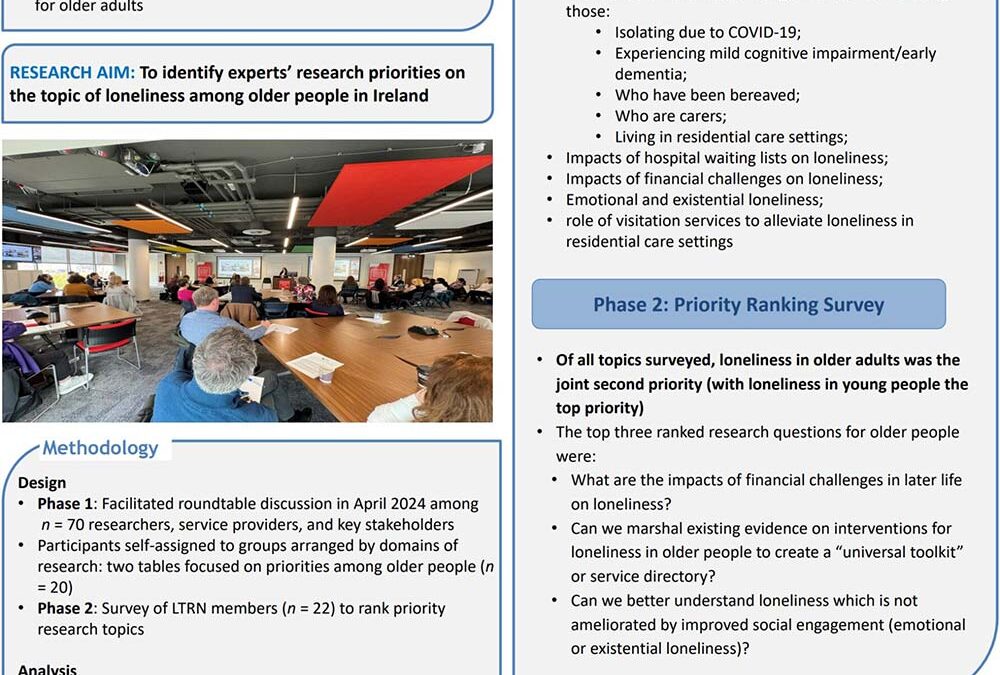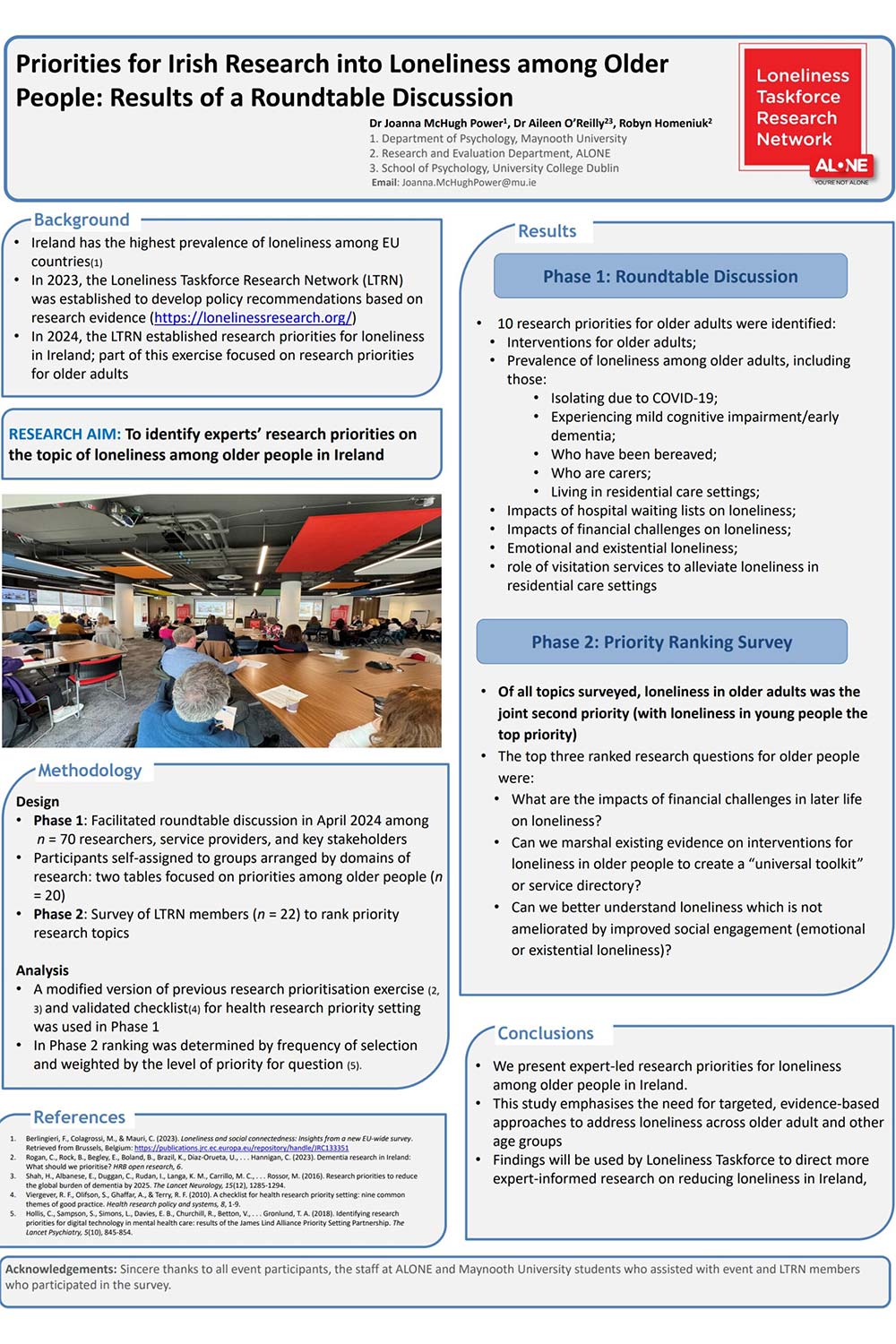Background: Ireland has the highest rates of loneliness of all EU countries. Those in the older old category (aged 80+) are at increased risk of developing loneliness, which is a risk factor for many undesirable health outcomes. While Ireland has a strong research output in terms of gerontological loneliness research, it is worth considering what future pathways are to be prioritised.
Method: We held a roundtable discussion on priorities in Irish loneliness research at the Loneliness Taskforce Research Network inaugural event on 16th April 2024. 75 attendees were present, including those from non-governmental organisations, health and social care professionals, experts by lived experience, academic experts, researchers, and representatives from the private sector and governmental agencies. Of seven tables discussing loneliness research priorities, two tables were devoted to the discussion of priorities in research on loneliness in older people. The priorities were then amalgamated and organised.
Results: There was considerable heterogeneity in priorities raised, with little overlap across the two roundtable outputs. Of particular note was the need to evaluate existing services and interventions being delivered across the country to alleviate loneliness among older people, but for which there exists no evidence.
Ultimately, priorities included:
- Exploring loneliness among older adults who remain immune compromised and socially isolated following the COVID-19 pandemic
- Prevalence of loneliness among older adults experiencing mild cognitive impairment/early dementia
- Impacts of hospital waiting lists on loneliness
- Potential role of visitation services to alleviate loneliness in residential care settings
Conclusion: Results are informative and will form the basis for a report from the Loneliness Taskforce to the Irish Government, who have pledged funding for alleviation of loneliness.



